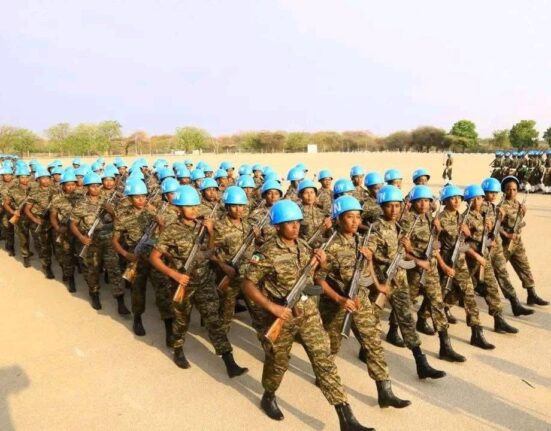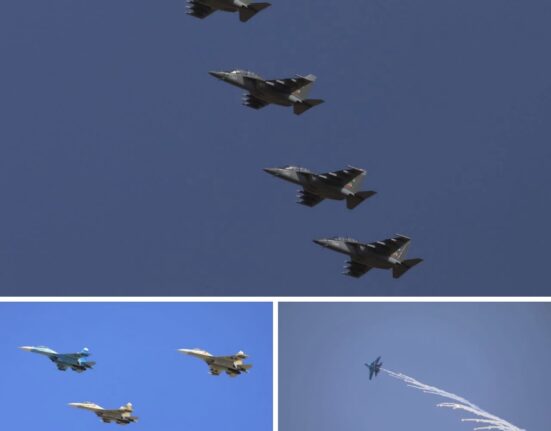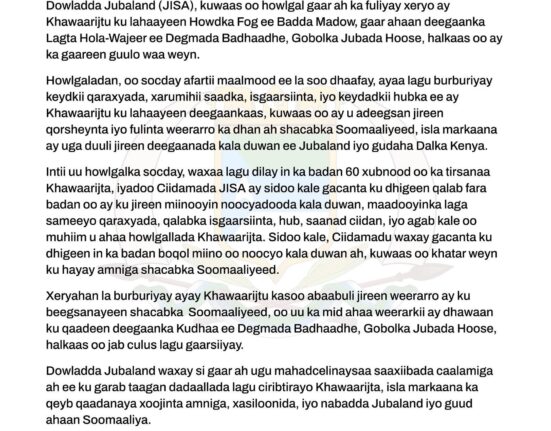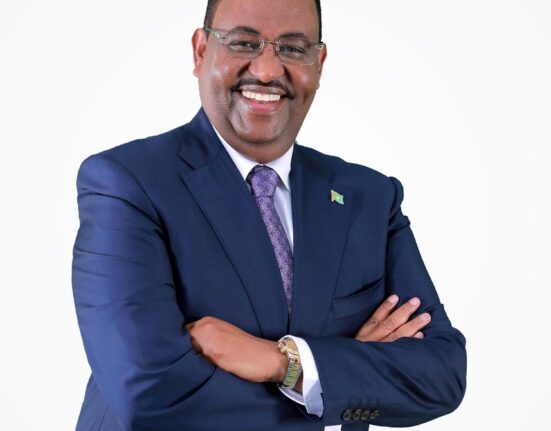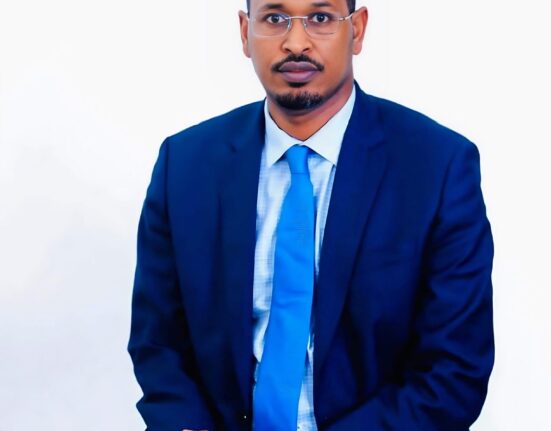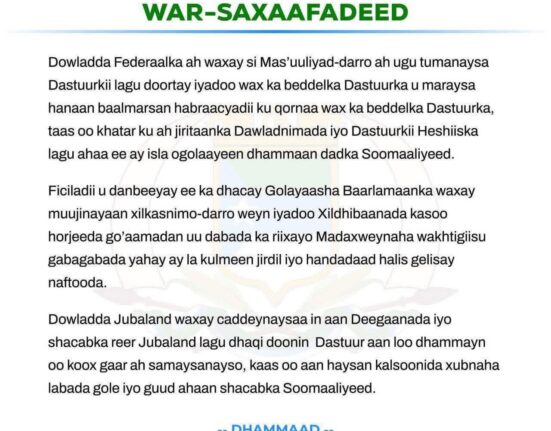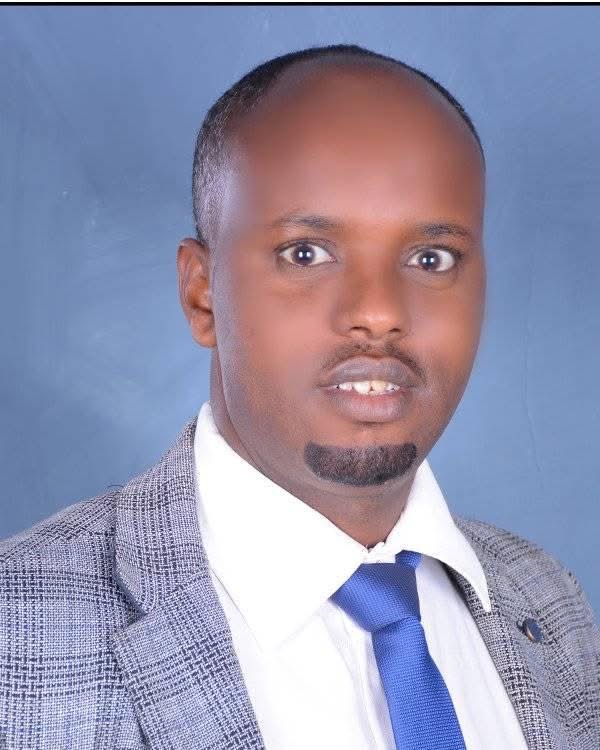
Introduction
The Somali Regional State of Ethiopia remains one of the least developed regions within the country’s ethnic federal system, despite its resource potential, vast land and strategic location. Years of underinvestment and limited infrastructure have left the region trailing behind in key human development indicators.
Nevertheless, when it comes to development, participation and consultation with the community matters. Additionally, development must be lawful, inclusive, and just. While the community of Daakhato, located in the Babille district of Ethiopia’s Somali Regional State does not reject development, but welcomes investment, it is desirable when it benefits the local residents, something we don’t see in our predicament.
The Daakhato Communities yearn for development. However, they see no public benefit for their community in projects that bypass the law, ignore the people’s voice, and violate constitutional and human rights. For more than a year and a half, a controversial industrial project involving stone mining for marble and granite—used for city beautification and luxury real estate—has been underway in Daakhato without proper community consultation, legal procedures, or benefit sharing with the impacted.
As the elected member of that community, I seek answers and clarification to the matter and respectfully advocate for swift and lawful responses and interventions.
Community Grievances and the Current Situation
The Daakhato region is a gateway to the Somali Regional State. It borders the Oromia region with which it shares many connections. Conflicts in borderlands have adversely impacted the residents of this area. In concert with best practices and community participation in resource development, the residents of the region expressed their dismay about how they have been excluded. It is not acceptable to ignore and bypass the community when opportunities to arise.
The residents have repeatedly submitted formal complaints to relevant Somali regional authorities about this project and other issues, but their voices have largely been ignored. The key grievance concerns the illegal extraction of marble-like stone minerals by a private company known as Wabi Marble and Granite Company based in Dire Dawa. According to residents:
1) The project began without any community consultation as required by Ethiopian and regional constitutional laws.
2) When residents objected and requested the project be halted or regularized legally, security forces were used to silence them, with many arrested and detained unlawfully in Jigjiga.
3) Armed regional forces now escort dozens of trucks daily, hauling away stone from Daakhato, while locals receive no compensation, employment, or benefits.
In addition, not a single worker at the large-scale extraction Quarry site is from Daakhato, despite it being the largest source of daily marble inputs for the industry in the region.
Apart from the above problems, the community shared with us other long-term challenges they have encountered. According to residents, other Economic and Social concerns that they face are:
1) Qoloji (regional tax revenue custom) reportedly the first in the regional revenue sources that generates over 5 million ETB daily (approximately 150 million ETB monthly), yet Daakhato receives none of this revenue.
2) The region employs more than 30 workers at the Qoloji site, but none hail from the host community. It is clear to us that this community is intentionally excluded from any opportunity that comes around.
3) Not enough development projects, such as schools, clinics, water systems, or roads, have been implemented in the area, despite the wealth extracted from the land.
Beyond the economy, the community of Daakhato suffers many social injustices that are hidden from the federal government and the rest of Ethiopia:
1) Historical oppression under the TPLF-led government included massacres, imprisonment, and torture due to the area’s being located near the regions where Ogden National Liberation Front (ONLF) used to fight.
2) Even post-reform era and since Prime Minister Abiy came to office, arbitrary arrests, intimidation, and political exclusion persist against those speaking up for their rights.
3) Essential services remain non-existent, both before and after the regime change in Ethiopia. No reliable healthcare, clean water, or educational infrastructure has been built.
4) Politically, Daakhato is denied fair representation in local government despite its large population and revenue contribution.
Legal Framework: National and International Rights Violated
The Constitution of the Federal Democratic Republic of Ethiopia (FDRE) and the Somali Regional State Constitution uphold the rights of host communities. Relevant articles include:
1) Article 43(2) FDRE Constitution:
Citizens shall be consulted on development projects affecting their communities.
2) Article 40(5):
Gives indigenous people the right to the land they occupy and prohibits forced evictions without consent.
3) Article 41(9):
Guarantees affirmative action to ensure disadvantaged communities benefit from national development.
These provisions mirror international human rights standards, including the UN Declaration on the Rights of Indigenous Peoples, which demands Free, Prior, and Informed Consent (FPIC) before any development project is implemented.
Yet in Daakhato, all these laws are being systematically ignored, and the armed forces are being used to shield illegal investment operations.
Environmental Concerns
The environmental damage being caused by unregulated extraction is also significant:
1) Massive quarrying without environmental impact assessment (EIA) risks long-term degradation of the soil and landscape.
2) Dust, noise pollution, and water contamination threaten the health of residents and livestock.
3) No mitigation or rehabilitation plans have been presented or enforced by the company or the government.
Faysal Omer, Member of the Regional Parliament of the Somali Region, Ethiopia
Email: faysal387@gmail.com
Jigjiga, Somali Regional State, Ethiopia


